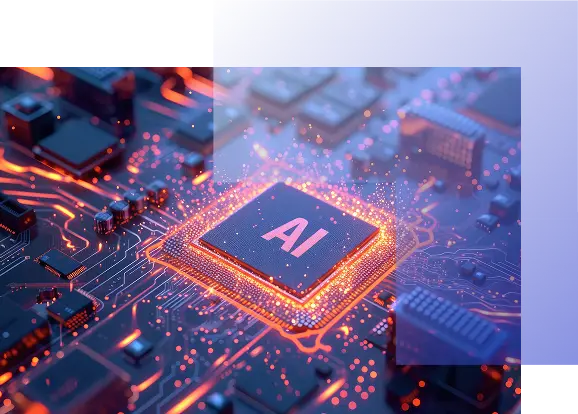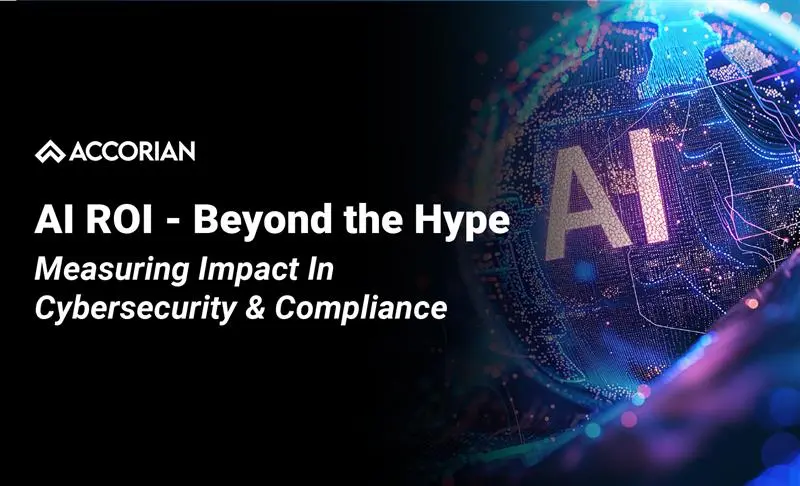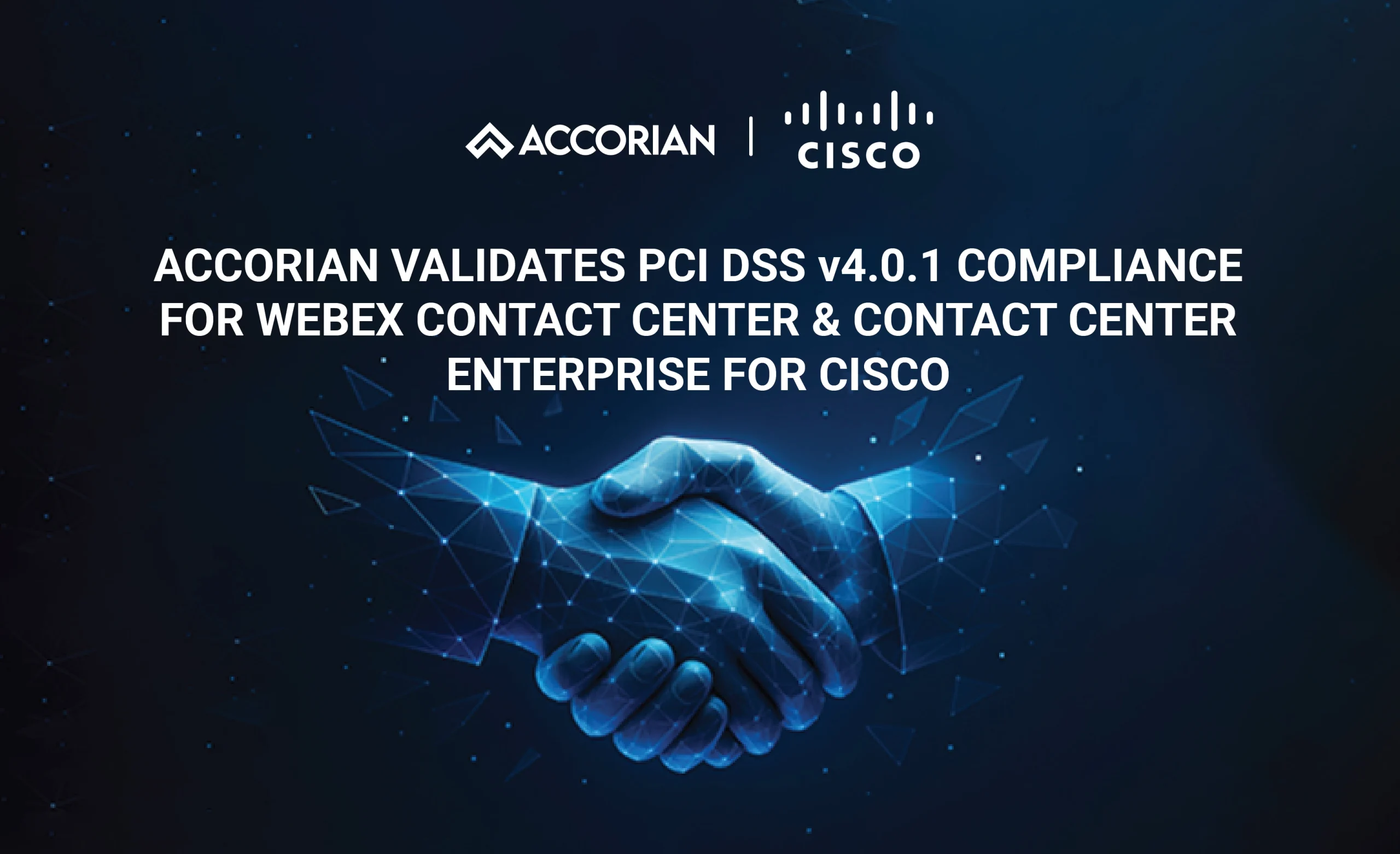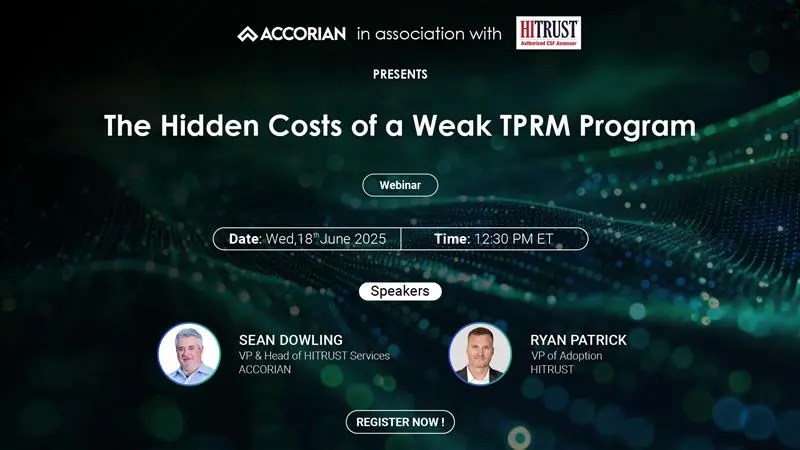Securing AI
Think Like Hackers. React Like AI.
As AI becomes integral to business operations, organizations encounter new security and compliance risks that extend beyond traditional cybersecurity measures. Accorian’s AI Security delivers expert advisory, guidance, tailored assessments and audits to address unique threats, compliance gaps, and operational risks, ensuring responsible and secure AI deployment . This applies whether you’ve home grown your AI capability or, leverage a 3rd party AI tool or, open source LLM.

Why Do You Need AI Security & Compliance
AI systems create vulnerabilities that didn’t exist in traditional IT environments. They learn and evolve, process vast amounts of sensitive data, and make autonomous decisions that can be difficult to predict or explain. Without proper security and compliance measures, organizations risk data breaches, regulatory penalties, and reputational damage from biased AI decisions. As regulators implement new AI-specific requirements worldwide, proactive AI security and compliance has become a business necessity.

The Importance of AI Security & Compliance
Protection Against Sophisticated AI-Targeted Attacks
AI solutions are subjected to novel threats such as adversarial attacks in which malicious inputs are used to lead the AI model to make faulty decisions, and model extraction attacks that try to steal intellectual property algorithms. These attacks are capable of violating not only data security but even the integrity of business decisions. Conventional security solutions are unable to counter these advanced threats because they target the learning mechanisms of the AI solution and not traditional vulnerabilities.
Regulatory Compliance in an Evolving Landscape
The regulatory landscape for AI is accelerating quickly, with developments such as the EU AI Act, U.S. proposed federal guidelines, and sector-specific standards imposing stringent compliance requirements. These regulations do not only touch on data protection—algorithmic disclosure, fairness testing, and continuous monitoring of AI system performance are all required. Those that do not comply with these requirements will have significant penalties imposed on them and could be excluded from using AI systems within some markets or applications.
The Security of Certification
AI programs can reinforce or even increase existing biases that occur in training data, resulting in discriminatory hiring, lending, health care, and other life-affecting decisions. Aside from the ethical consequences, biased AI programs subject companies to vast legal risk and can lead to class-action suits, regulatory probes, and long-term reputational harm. Fairness must be ensured through constant monitoring and testing far exceeding the validation of an initial model.
01
HITRUST For AI Systems
Accorian provides Readiness and Certification Services for the HITRUST AI Risk Management Framework (RMF) and the HITRUST AI Framework Certification, helping healthcare organizations govern and certify their AI systems responsibly and securely.
02
NIST AI Risk Management Framework (AI RMF)
NIST’s AI RMF offers a systematic way to develop reliable AI by mitigating risks throughout the AI lifecycle. Accorian collaborates closely with organizations to synchronize their AI methodology with NIST’s central pillar governance, data integrity, transparency, and resilience. Furthermore, we assist you in managing evolving AI risks with confidence.
03
ISO 42001 – AI Management Systems
ISO 42001 is the world’s first international standard solely dedicated to AI management systems. Accorian assists your organization in embracing this revolutionary standard, which promotes responsible AI technology development, deployment, and monitoring. From governance to lifecycle controls, we assist in making your AI systems auditable, secure, and aligned with best practices from across the world.
04
AI Risk Assessment
Evaluate your current AI security and risk posture through in-depth review of your current AI inventory including homegrown models, third-party services, open-source LLMs, etc. and assess attributes like usage mapping, and data flow. The inventory helps in identifying current & potential risk exposure. Additionally, the AI-specific risk assessments help uncover model flaws, bias, and regulatory gaps, helping build trust and meet compliance expectations.
05
AI Chatbot Penetration Testing
Accorian’s AI Chatbot Penetration Testing service identifies vulnerabilities specific to conversational platforms powered by large language models. With chatbots handling sensitive data and facing evolving threats, Accorian goes beyond traditional testing to assess prompt injection, LLM-specific risks, and real-time behavior. The service helps organizations stay compliant, protect user trust, and secure their AI-driven interfaces.
06
AI Security Governance
This framework addresses everything from data management to ensuring fairness and transparency in AI systems. Unlike traditional IT governance, AI governance must tackle new challenges—like preventing bias, defending against model manipulation, and explaining automated decisions to regulators and users.
07
Third Party AI Security Validation & Vendor Risk Assessment
As external AI solutions become integral to critical operations, managing their security is vital. Our validation service independently assesses vendor systems against tailored standards—evaluating technical controls, governance, and operations to ensure security across your entire AI ecosystem.
08
OWASP Top 10: LLM & Generative AI Security
OWASP Top 10 for LLM and Gen AI framework targets specific vulnerabilities in AI systems with a strong focus on machine learning and large language models (LLMs). It provides guidelines to address the top ten most critical security issues, such as prompt injections, information disclosure, data & model poisoning etc.
09
ISO/IEC 42005:2025 Information Technology - Artificial Intelligence (AI) - AI System Impact Assessment
ISO/IEC 42005 guides organizations conducting Al system impact assessments. These assessments focus on understanding how Al systems and their foreseeable applications may affect individuals, groups, or society at large. The standard supports transparency, accountability and trust in Al by helping organizations identify, evaluate and document potential Impacts throughout the Al system lifecycle.
10
ISO 23984
ISO 23894 helps organizations navigate AI-specific risks by adapting ISO 31000’s principles to AI contexts. Known for its practical, flexible approach, it supports effective AI risk management without rigid compliance demands.
11
U.S. State-Level AI Compliance
Ensure alignment with emerging AI regulations such as Colorado’s AI Act and New York’s RAISE Act, focusing on high-risk AI system governance, discrimination prevention, and safety reporting.
Accorian’s Proven Approach

Comprehensive and Holistic Approach
- Holistic AI Evaluation Framework: Detailed assessments conducted to evaluate third-party AI solutions and Large Language Models (LLMs) across the AI lifecycle, offering a complete view of organizational AI security posture.
- Multi-Framework Compliance Mapping: Adding AI security frameworks and standards to your existing security framework. They would range from frameworks like HITRUST AI, ISO/IEC 42001, and EU AI Act to support current and future regulatory compliance requirements.
In-Depth AI Risk Evaluation Process
- Stakeholder Interviews: Facilitated discussions with cross-functional teams to uncover operational gaps and inefficiencies in AI development, deployment, and oversight processes.
- Technical Evidence Validation:Validation of supporting documentation, training datasets, evaluation logs, and bias mitigation controls to assess the effectiveness of implemented safeguards and continuous performance monitoring.
- AI Governance Audit: Evaluation of enterprise AI governance structures, including risk management protocols, accountability frameworks, incident response readiness, and third-party vendor management.
Actionable Insights and Remediation Support
- Detailed AI Risk Posture Report: This final stage delivers an in-depth report outlining security and compliance scores, domain-specific risk ratings in areas such as data security, model security, and algorithmic fairness. This report also includes industry standards and peer benchmarking.
- Prioritized Remediation Advisory & Recommendations: Structured, prioritized remediation roadmap accompanied by expert advisory to enhance organizational AI security and align with best practices.
Think Your AI Tools Are Secure?
Let's Find Out.
Risks of Unsecured AI Systems
Data Leakage from AI Systems
AI models require large volumes of data. This could include your IP, sensitive data, client information etc. Without strong encryption, access controls, and secure processing, these systems expose critical business or customer information to breaches.
Embedded Bias in AI Decision-Making
Poorly trained or unmonitored models reinforce societal biases, leading to unfair or discriminatory outcomes, posing legal, ethical, and reputational risks.
Security Vulnerabilities in Third-Party Vendor Systems
AI tools rely on complex supply chains involving third-party datasets, cloud services, and open-source code. Each component introduces potential attack vectors that must be independently validated.
Regulatory Non-Compliance and Oversight Gaps
With AI-specific regulations evolving globally, organizations face increasing pressure to meet transparency, accountability, and auditability requirements. Failing to do so results in penalties or loss of stakeholder trust.
Common Myths About Applicability
AI Security Does Not Apply To Me As I Use A 3rd Party AI Tool Or, LLM
Organizations forget about their shared responsibility with the AI service provider and are still responsible for numerous security elements like access controls, data security, monitoring, logging etc. Just like hosting on the cloud
We Only Have 1 Approved AI Tool Which Is Copilot
Most organizations are plagued by shadow AI and the inability to detect leakage of sensitive data on 3rd party AI tools that their teams are using. It’s important to track, review, inventory and manage all AI tools & utilities.
Security Can Wait Till We Have Fully Operationalized AI Internally
Old adage of stitch in time saves nine, it’s essential to keep security at it’s core. Data was initially confinded to endpoints, servers then networks and then cloud which was managed by 3rd parties and today is accessible by AI tools which are learning from your data, utilizing it for further tweaking their models and could also lead to possible leakage of your sensitive data through effective prompting. Hence, it's important to factor for securing your AI implementation in the design phase to include the necessary controls & guard rails.
Access Our AI Certification Brochure
Ideal AI Security Framework Brochure
Trusted By Leading Clients
We've partnered with Accorian since our early days and they were quite adept at navigating the complex risks tied to data exposure, privilege escalation and multi-tenancy in our AI-driven product. Their team immediately stood out— not just for their technical chops, but for how quickly they understood our context. Their solutions weren't generic, rather they dug deep and asked tough questions to help us see the bigger picture. Their AI Chatbot Penetration Testing was thorough and tested our guard rails to the limit. Thanks to their work, we’ve tightened our security posture significantly and feel a lot more confident scaling in this fast-changing threat environment.
– Andy Sen, Co-Founder / CTO at Precanto
IMM started working with Accorian team few years ago to perform a Pen testing for our application and cloud infrastructure. Accorian team has done a great job in working with our engineering team to safeguard IMM’s application. Our collaborative work has yielded in additional product pen tests and now part of our DeVops process. Great Job Accorian team and happy to have you as our trusted 3rd party security team.
– Nish Shah, CTO at IMM
We engaged with Accorian to streamline our security environment and safeguard us from long-term threats in an evolving cybersecurity landscape. Their sole focus was to ensure the breadth and depth of our systems were protected.
– Jatin Mehta, Head of Engineering at Openroad Media
I have handled a few pen test engagements over the last few years and this was the best overall experience. Ashritha and her team genuinely care about the security of their clients, and ensure no stone is left unturned.
– Zalman M, Security Manager at FinTech Co.
Our experience of working with Accorian was extremely positive. They quickly grasped the scale of our systems, project managed with clear deliverables, over communicated and ensured all our deadlines were met. The professionalism of the service provided was wonderful. I highly recommend Accorian to anyone in the future for business critical security needs.
– Rajib Ahmed, CTO at Meetup
Why Choose Accorian?
Accorian differentiates itself by its in-depth knowledge of AI’s distinct security and regulatory challenges, providing niche services that go beyond conventional cybersecurity models. Our end-to-end approach rigorously assesses the full AI lifecycle, utilizing top-tier governance frameworks to ensure comprehensive compliance with evolving international regulations. By delivering rich, actionable insights and continuous remediation support, Accorian enables organizations to actively monitor and manage AI-specific risks, drive algorithmic fairness, and safeguard against advanced AI-targeted attacks, ultimately providing a secure and compliant AI journey.
Our team includes experienced security professionals and specialists in AI risk management. Their combined expertise ensures your organization receives top-tier guidance and support in navigating the complexities of AI security and compliance.
Frequently Asked Questions (FAQs)
Q. What does “Securing AI” mean?
A. Securing AI refers to protecting AI systems, models, and data against risks such as adversarial attacks, data leakage, and compliance failures, ensuring responsible and trustworthy AI deployment.
Q. Why is AI security important today?
A. With generative AI adoption accelerating, organizations face new risks around data privacy, regulatory compliance, and model manipulation, making AI security essential to protect both business value and reputation.
Q. What risks do organizations face with AI?
A. Key risks include data poisoning, adversarial inputs, leakage of sensitive information, lack of governance, and gaps in compliance with AI-focused standards and regulations.
Q. How does Accorian help secure AI systems?
A. Accorian provides AI risk assessments, penetration testing for AI models, compliance alignment (e.g., NIST AI RMF, ISO 42001), and governance frameworks that ensure AI is secure, ethical, and regulation-ready.
Q. Which industries benefit most from securing AI?
A. Sectors like healthcare, finance, SaaS, and government gain significant value by protecting AI systems that handle sensitive data, regulated processes, or mission-critical operations.






